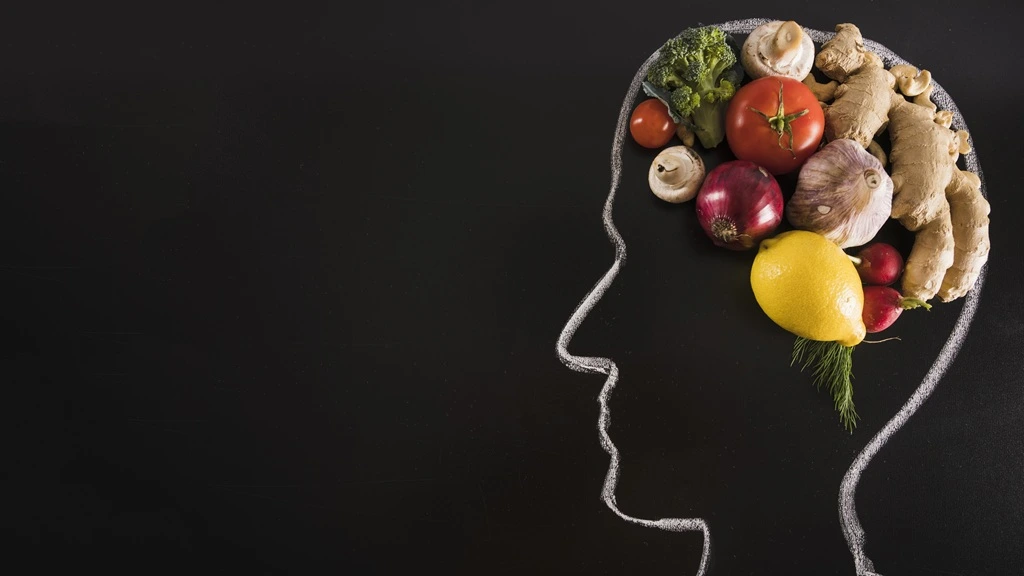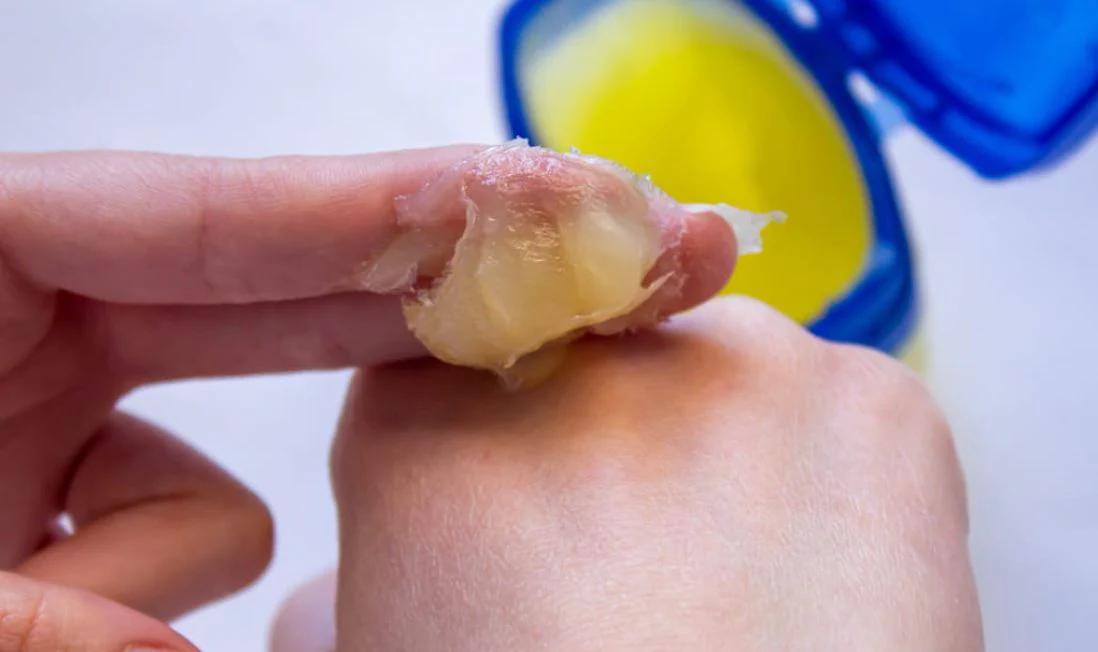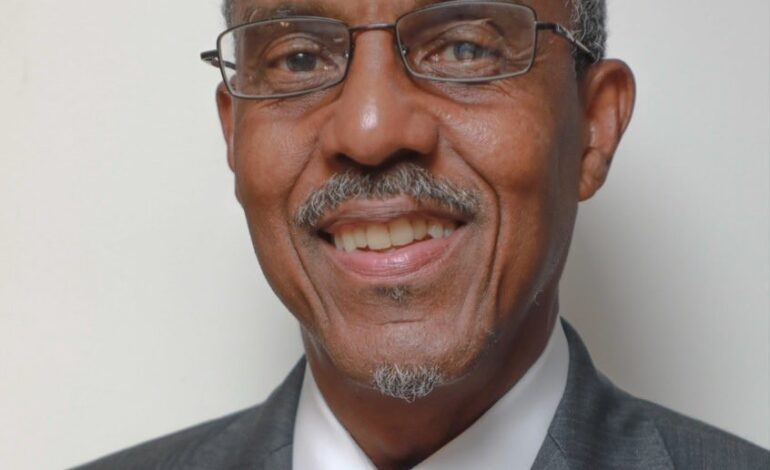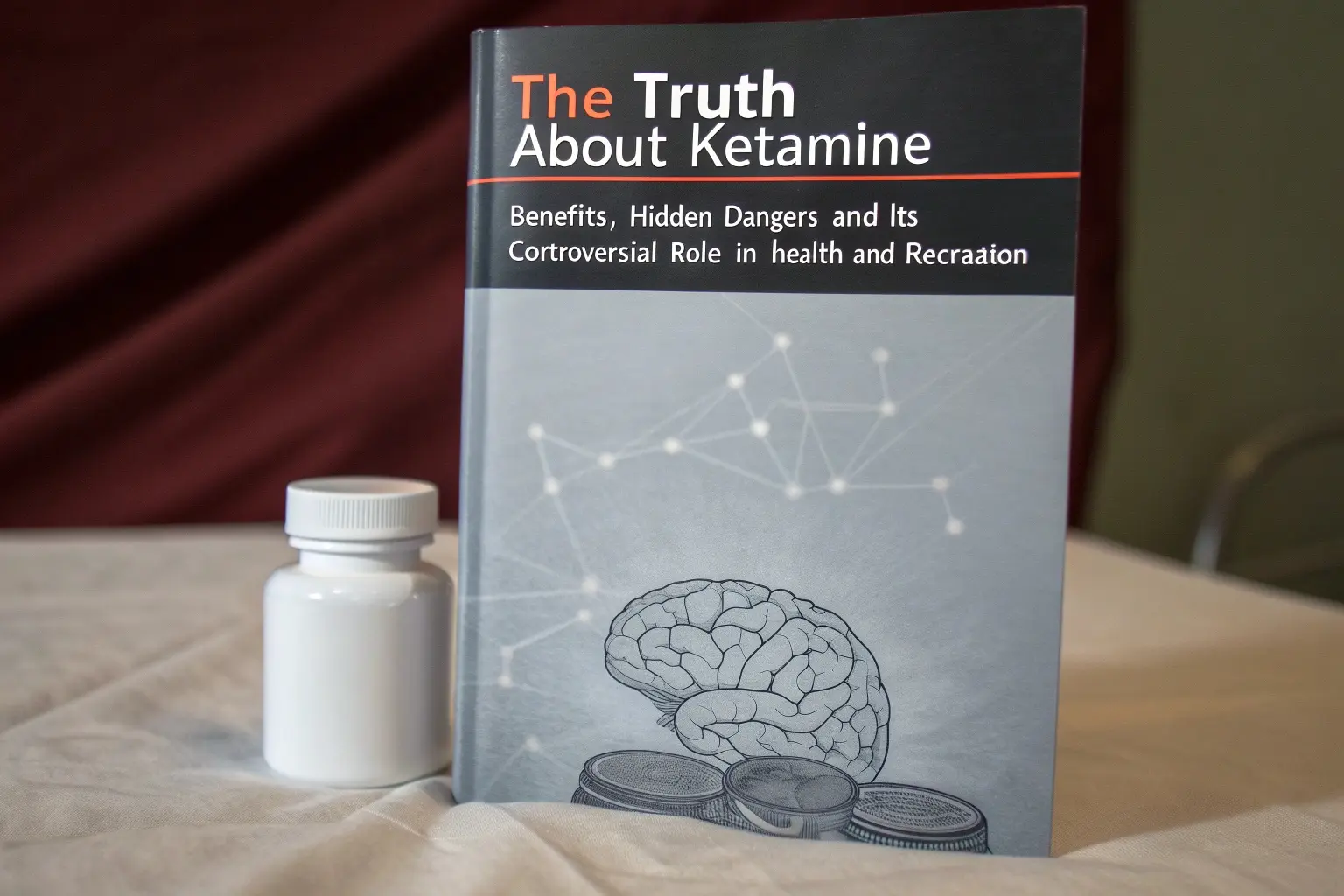You wear many hats — pharmacist, pastor, husband, and father. What keeps you grounded while balancing these roles, and where do you find the strength to show up fully in each one?
A:
First, thanks so much for the opportunity to share.
As a pastor, my role is to shepherd the flock by being an example of oneness with Christ as a lifestyle. All other roles flow from this concept of oneness with Christ, where all Christians also seek to be one with each other by the power of the Holy Spirit. In all of this, the connection between faith and health continually guides how I live and lead, reminding me that spiritual grounding supports every part of well-being. This is life — so regardless of the role, whether in authority or under authority, we are all equal in value, potential, and position, both in life and in Christ.
This gives the baseline for my roles as father, husband, pharmacist, pastor, and everything else: to make it a better world by the power of the Holy Spirit. My goal for my kids is that they walk empowered — using fun, games, and love as part of life, sharing mutually, leading by example, and always teaching in different ways. It’s the same with my wife — we are not only equal, but one person in marriage and one in Christ.As a father and husband, my perspective comes from the male view — equal but different from my daughters and my wife. In this era, we have to always be conscious of teaching and being an example of the harmony and balance between men and women in Christ. I love the provider and protector role of manhood. The pharmacist role just flows naturally from that same view of holism.
So from that Christian baseline all roles work together.
As both a spiritual and medical leader in your community, how do you see the relationship between faith and health? Can healing be truly holistic without addressing both the body and the soul?
A:
Health is a part of faith, and faith affects health — so yes, holism sees the whole person. This is why the ongoing relationship between faith and health becomes essential to understanding how spiritual alignment influences physical and emotional well-being. Holism also recognizes personal homeostasis (health) and symbiosis, meaning life in relation to all other existence. Jesus called this the greatest commandment: love God, love self, love neighbor. God exists and is good for us. We just have to believe that reality, as we (humans) alone have free will not to believe it. With our free will, we can choose unbelief — but anything not of faith is sin, and sin leads to disease. That said, not all disease is caused by sin. Just having a disease doesn’t mean we’ve sinned.
Let’s define faith clearly here. Christian faith is believing that God is all, and that He is a rewarder of those who diligently seek Him. All existence comes from — and is empowered by — God. Even evil is what God allows. He’s omnipotent. But God is one God in three persons: God the Father, God the Son, and God the Holy Spirit. By faith, we access His grace, and we are then permanently and paternally given the position of holiness. We can still sin and step out of position, but we never lose it. The Holy Spirit seals us and guarantees our lifestyle to be without sin — even though, yes, we will sin — but not habitually. We lose that part of free will. We can’t undo what He’s done. We are permanently forgiven of all sin by His Son. We have access to speak to the Father, and the Holy Spirit speaks, comforts, and guides us — giving us a life of power and joy.
This is the gospel: For God so loved the world that He gave His only begotten Son, that whosoever believes shall not perish but have eternal life. This life is holistic and transgenerational.
Health, defined as homeostasis, occurs within this context of joy, power, and relationships — therefore: truth, peace, and order. This is God’s design for humanity, which is reflected even in biology — the study of life. The soul, then, is a part of the inner person, including the heart and mind, as the heart and spirit intertwine. The mind and brain intertwine. Faith comes from the heart, where evil tempts the mind — but a clean, believing heart cleanses the mind and conscience from those evil thoughts.
This is Christ. He had a human body, operating within the same biological systems — putting aside His divinity and being tempted in His mind just as we are, but without sin. He was Holy Spirit-empowered, just as we who believe are. He’s now in heaven, but left that same Holy Spirit at Pentecost to be in us permanently — eternally — at the first instance of faith in His omnipotence. We then imitate Him.
Health is the state of being in physical, spiritual, and mental order, but all movement toward being healed is improvement. Everyone needs improvement, even without faith in God. Health itself is dynamic — we never totally attain it, but continually strive for that perfection. The goal of doing no harm fits universally.
So putting it all together: being a medical professional means we meet people where they are, and we triage. We go as far as they will allow. We focus on their direct medication needs but always work to establish bridges between them and their entire healthcare team, with health as the goal. We openly declare God’s order — but it’s completely up to them to touch upon it, ignore it, or jump in with both feet. God is totally about free will — but with arms open to heal, set free, and deliver. God provides the language and framework to work in teams respecting where people are.
Running Best Life Pharmacy in New Orleans, you’ve created a space that goes beyond prescriptions. What inspired you to shape your pharmacy as a hub for wellness, education, and personal care?
A:
In a word — Christ. His grace, flowing through His Spirit, is the inspiration. He uses everything in us, as all things work together for the good — even the bad things. I didn’t come to Christ until I was 35 years old, but God uses everything.
At Xavier, I became a vegan and connected with my natural products chemistry professor, Dr. Lanny Foss. The year I got saved, we just happened to run into each other crossing the street at the old Charity Hospital. He asked if I wanted to teach a nutrition course. I excitedly said yes.
That led to a year of intensive nutrition training with the Nutrition Institute of Louisiana, as they were implementing two courses at Xavier’s College of Pharmacy — one focused on hospital nutrition and the other on community nutrition, which I became part of. I also instituted a nutrition clerkship program at Walgreens, where I practiced. It was novel: a six-week rotation focused solely on counseling, backed by research. Each student had to validate all their counseling in writing, using evidence-based resources.
Eventually, the nutrition course was absorbed into other classes, but I shifted to teaching herbal medicine — rooted in the same nutritional principles. Altogether, this lasted 23 years, until 2017. In March 2013, we opened Best Life Pharmacy and Restaurant, with Dr. Foss preparing the first module of nutrition training for the chefs. Herbal medicine became a beautiful place to explore holism and its theological foundation, which truly helped connect theology and science.
At the same time, I was teaching at Paul S. Morton Bible College, and my prior foundation in Black nationalism and self-sufficiency came together to help shape the Best Life vision. The recipes were inspired by my father-in-law, who had serious metabolic diseases. My wife and I helped him adjust his diet to keep the flavor while switching to healthy ingredients. He and his family had run a soul food restaurant called Dot and Gladys in the 1970s and ’80s — so they knew good taste. Every Sunday after church, we’d eat that great food, and I’d always say, “This has to be a restaurant.”
At the same time, I hosted a cable television program called Health Issues, where I interviewed researchers and other thought leaders. I happened to interview a Tulane researcher who was developing a social entrepreneurship major, which aligned perfectly with the vision we had when we founded our church in 2010 — to eventually build a school. That’s when the idea was born: to create a for-profit health business that could one day help finance a non-profit K–12 school within 15 years.
When COVID hit, we closed the restaurant and transitioned fully into Best Life Pharmacy and Wellness, shifting our focus even more toward teaching and communication. Patient needs and system gaps drive everything. The medical system leaves holes we’re able to fill. We perform continuous medication reconciliation, custom med packs, and delivery — all of it infused with relationship and education. The med packs drive the continuous reconciliation, and the delivery meets people where they are — so together, we become deeply intertwined in their lives as family. From this base, everything else flows.
Read About: The System Didn’t Make Room for Her—So Shamekka Marty Built a Platform Instead
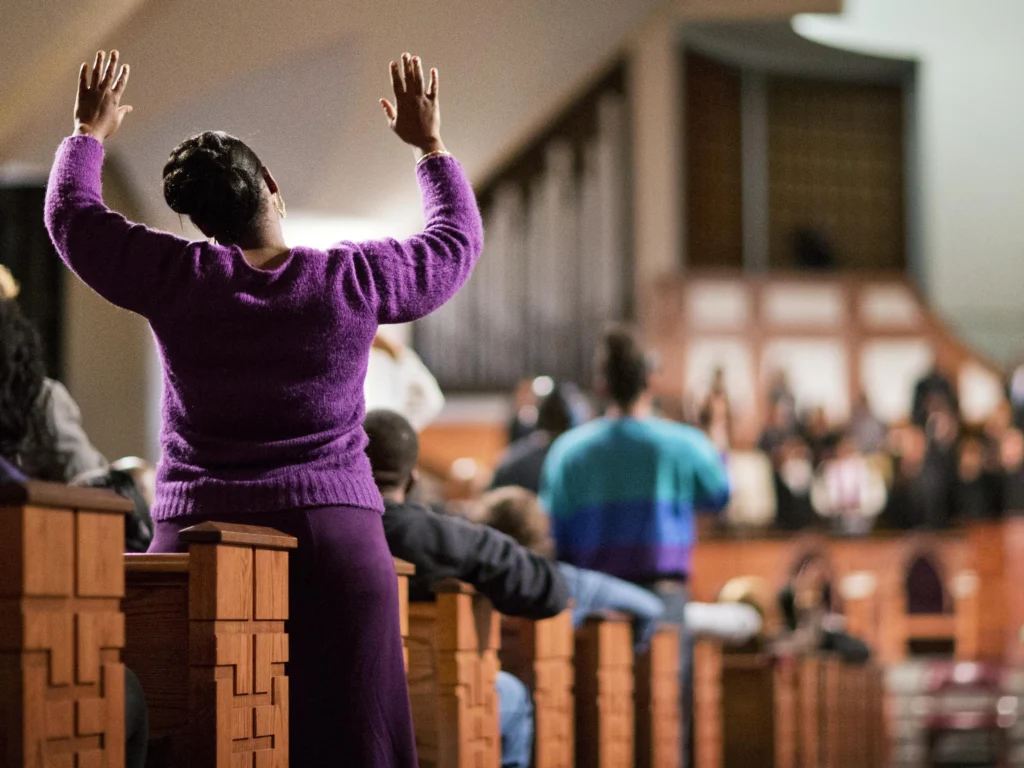
Over 35 years in health and service, what would you say has been your most significant impact on your community, both in the church and in your pharmacy?
A:
In a word — holism.
The opposite of holism is reductionism, and while I worked hard early on to do good things, the net result often reduced my community. But once I came to Christ, the Holy Spirit made me an asset — just as all believers are, holistically, each with different gifts. In that context, faith measures the impact.
The Trinitarian concept of holism — first revealed to me in 1993 and espoused since then — is, I believe, the most significant impact I’ve had. Every part of my past contributes to it: from nutrition (whole food, plant-based) since college, to community self-determination as justice, to a deep respect for scientific methods and consensus. All of these are the same.
The positive impact, then, begins with the Trinity. Teaching, sharing, and living this reality becomes the impact. Holism is transmitted — through words, medications, systems, and relationships. And all of that transmission is rooted in the church, because holism demands relationship. It can’t live in a vacuum or an echo chamber.
Read About: The System Didn’t Make Room for Her—So Shamekka Marty Built a Platform Instead
So the true impact of the church must be felt outside its walls. This makes church impact, community impact, and pharmacy impact all intertwined—where holism is the word.
Specifically for the church, the call is to advance even more the doctrine of holism, which Full Gospel helped resurrect in 1993 — reviving the early church model of the fullness of the Holy Spirit by faith alone. We call it Full Sola Fide, after Martin Luther’s Sola Fide declaration — but we add “full” to describe the gifts of the Spirit empowering all believers to boldly speak what God says.
We expand this further into the concept of convergent holism, which brings science into full convergence with theology — both approached holistically, because they are equivalent when rightly understood. Emergence and quantum mechanics validate the presence of other realms, dismantling reductionism and determinism. While science must remain agnostic in its methods, theists are free to postulate God as the omnipotent, ordering dimension.
Evolutionary biology, neurobiology, physics, pharmacy, medicine and history — all of these coordinate beautifully with the holistic model of the early church.
The peace, power, and joy of Christ, then, obviously lead to impulse control — which shapes every part of our mind, body, and daily decisions. And there is no other sustainable method of impulse control outside of Spirit-filled transformation. Authoritarian systems may suppress impulse, but only holism in Christ renews it.
Together, this is holism.
What are some of the most pressing health challenges you see in the Black community, and how has the church played a role — positive or negative — in addressing or ignoring those issues?
A:
If measured as a separate country, the life expectancy of the Black community in the U.S. would fall into the lowest global quintile — comparable to the most underserved nations on earth. The legacy of slavery is the root, but the church is the responsible party to change it.
Instead of reversing the trajectory, the church has effectively maintained the doctrines of the same slave system that created the problem. These doctrinal failures have shaped not only spiritual life but also the lived outcomes of faith and health within the community. The early church was impervious to Roman government and the surrounding Gentile societies. Their doctrine was ironclad, and leadership was tasked with keeping it pure from false teachers. That was their only job.
Once doctrine becomes polluted, outside cultural, financial, and governmental systems inevitably destroy the church — and along with it, the family structures within. The result is the dismembering of transgenerational thriving.
The doctrine of the early church was Full Sola Fide — the fullness of the Holy Spirit by faith alone. Jesus operated by the fullness of the Holy Spirit, and that’s all we need.
That power expresses itself in a powerful voice, egalitarianism, economic self-sufficiency, joy, family stability, and the emergence of strong men, strong women, and strong marriages — all being fruitful and multiplying, growing stronger with each generation.
What happened in 325 A.D. with Constantine transformed the church from being Trinitarian to functionally binitarian, stripping the Holy Spirit of His fullness and power. The Spirit became a shell within the Trinity — present in name, but not in function — which means it wasn’t the Trinity at all.
By the early 20th century, under William Seymour, the Holy Spirit resurfaced but tongues became mandatory and eternal security was lost. This reduced the work of Christ, where everything was originally by faith alone. Without the Holy Spirit received by faith alone, the full power in the pews still wasn’t there, leaving people dependent on the clergy for everything. Particularly loss of eternal security creates a life of chronic fear.
Whether the church is institutional or autonomous, when doctrine is wrong, parishioners are powerless. The leadership — often a single man — decides who goes to heaven or hell, based on his own definitions. The white church used this structure for slavery and white supremacy. The Black church adapted the same model for its own form of cultural survival.
Then the mental health economy moved in to fill the gap created by this flawed doctrine — especially the doctrine of progressive sanctification. Instead of receiving the fullness of the Holy Spirit and immediate holiness at salvation, people are told to gradually sin less over time. This leaves them on a permanent guilt cycle, from which they never escape.
Their conscience wars against their behavior, and the anterior cingulate cortex — a brain region that detects conflict between belief and action — fires constantly. This chronic dissonance produces emotional instability, confusion, and a host of maladaptive behaviors.
But the Trinity is God. And when faith is placed in Him, it produces structured fear — the kind that leads to courage, joy, clarity, and self-control. This isn’t mystical — it’s basic neurobiology.
The post-Constantine church — by replacing the Spirit with ritual, clergy dominance, and false humility — has left people worse off than if they had no church at all.
When the power of the Holy Spirit was removed, the emotional and moral vacuum in worship was filled with mothers. The mother became the moral and ethical foundation of the family and community, not by design, but by necessity. Over time, the church adapted to this dynamic, with leadership responding to the social status of the mother rather than the truth of the gospel.
This created a feminine spiritual system with a male figurehead at the top — a structure that looked biblical on the outside but functioned according to emotional hierarchy. The Spirit was no longer leading; the system was being governed by maternal loyalty, emotional weight, and inherited cultural expectations, rather than by holiness, clarity, and truth.
This system, obviously, is one without true impulse control — and it works hand in hand with the doctrine of progressive sanctification. In this model, the only “rules” that needed to be followed were the ones the mother figure — whether literal or symbolic — deemed appropriate for that church or denominational system.
Rather than being governed by the Holy Spirit, sanctification became behavioral compliance with the matriarchal standard. Righteousness was no longer imparted by faith but managed by expectations, often rooted in emotion, culture, or survival — not Scripture.
Upon this system, slavery was built — and the system still stands today, even without chains. It is no longer enforced by whips and plantations, but by doctrines, structures, and emotional economies that were never corrected. The result is visible everywhere: in life expectancy gaps, financial disparities, educational inequality, and the breakdown of impulse control.
This is how the Black community was moved from pyramids to projects. From ancient civilizations that reflected divine order to housing systems designed to manage decline — not restore dignity.
What barriers have you faced in bringing health education and prevention into spaces of faith? Have you ever encountered resistance, and how do you navigate that tension?
A:
Yes — resistance almost everywhere, of course.
Holism is simple, but it’s true. And that truth threatens the world’s default system: determinism. In most spaces, self and ego populate ignorance and evil — and that’s where the resistance comes from.
But this is also where the joy comes in. There’s nothing better in life than fighting to build up the kingdom of God. You get perks in that job: peace, love, and security. And there’s nothing more fulfilling than watching people be transformed — as I was — from lost to found. It’s excitingly great.
Interestingly, the road has often been easier from the scientific side than the theological side. Science has structure — peer review, research methods, collaboration, documentation, standards of ethics, and universities. Even though most scientists in this space — like Kevin Mitchell of Dublin — are atheists, holism is gaining traction because science allows for process and evidence.
Theology, by contrast, has no unified system for holism. There are no holistic seminaries, libraries, research institutions, or journals. In many faith spaces, there’s only the Bible and a few scattered materials — but no infrastructure for building theological holism.
We can teach weight loss, medication adherence, and exercise fairly easily. But the moment we discuss impulse control, the resistance begins — because that’s when you have to tell people the truth: they have the same power as the pulpit, and they are eternally secure. That’s where the trouble starts.
Impulse control includes sexual impulses, such as those tied to LGBTQIA+ ideology, and racialized cognition, like white intellectual superiority. Teaching people to invalidate those concepts through Spirit-led faith is seen as radical, but it’s the only path to freedom. Without impulse control, no health education or theology can lead to sustained transformation. Science validates this inarguably along with the Bible validating it inarguably.
From your unique vantage point, what are the top three changes that must happen — within the healthcare system, in churches, and at the individual level — for true health equity in Black communities.
A:
Number One: AI must be promoted and taught everywhere.
AI is the only tool available right now that allows individuals — regardless of educational background — to question, investigate, and integrate knowledge across disciplines. ChatGPT 4o, in particular, is the first system capable of true interdisciplinary reasoning, which is essential for a holistic worldview. That’s been the core problem for over 1,700 years: access to information is no longer the issue — alignment is. And alignment requires synthesis.
The resistance to AI — from academic institutions, churches, and cultural gatekeepers — is ideological, relational, and financial. But AI can cut through the cancer. It still needs the right prompts, but the Bible hasn’t changed — and its neural-structured reasoning, when combined with AI, reveals the truth of holism in seconds. One researcher recently told me AI reduced months of research into a few hours. That’s the future, and that’s why it’s number one.
Number Two: The church must boldly speak into health spaces.
We don’t expect scientists to object — they simply report the data. But suppose their data led to justifying orgies or child sacrifice? We would scream. That’s why leaving science in its agnostic lane is necessary — but not sufficient. The church must interpret and define what is good, holy, and human. That’s why holism must stay rooted in the church, even as it collaborates with science across all human-related fields — just as ethicists do today.
Number Three: Evangelism must be the individual’s focus.
Without the Holy Spirit, we are powerless and enslaved to our impulses. Free will, in that condition, is an illusion. No medication, education, or therapy can correct the soul. Only evangelism — introducing someone to Christ and the fullness of the Spirit by faith alone — can restore their identity and unlock true agency. That is the foundation for impulse control, peace, and lasting transformation.
How do you educate and empower your congregation and patients to become advocates for their own health, especially when medical mistrust or limited access can get in the way?
A:
This is truly the role of a health advocate.
Medicine is too vast and complex for laypeople to fully navigate on their own. They need someone who is part of the system — someone who knows the language and expectations — to guide their unique decisions while still honoring their free will to choose.
We advocate for pastors to team up with physicians to advance the patient’s behavior in relation to their health goals. But that’s only part of the picture. A patient doesn’t just need a pastor or family member — they need a trusted pharmacist and/or primary care physician who can walk with them, advocate for them, and help them navigate the system.
Our maternal mortality and infant mortality rates are deplorable. Holistic care is no longer optional — it’s urgent.
At Faith Full Gospel and Best Life, we focus on the weakest, just like the early church did. Widows and orphans are critical. With a 70% out-of-wedlock birth rate, almost all Black children are now in single-parent families. In Louisiana, nearly 95% of children are on Medicaid. And as mentioned earlier, elderly life expectancy is too short.
For my elderly patients at Best Life, our continual medication reconciliation system works. It keeps us connected. We’re in regular communication with their prescribers and families because medication changes monthly or nore for many. In order to keep their med packs accurate, we must all communicate. Outside of hospitals or institutions, this level of contact is rare — but it’s what protects the vulnerable. We become their advocate.
In the church, we offer a weekly healthy eating, encouragement, and exercise class — but more than that, we espouse the theology of holism in every message. Every sermon includes power, and therefore impulse control. Whether in evangelism, women’s ministry, or men’s activities, we all speak the same language: holism.
We have power. There is no fear of status — not from doctors, hospitals, or medical systems. When people hear from God and speak what He says, they can speak truth to power — especially when it comes to their own health and the well-being of their loved ones. And when they do, they know they have a church behind them, always.
What role does legacy play in your work — as a father, a pastor, and a healthcare professional? What do you hope your children and your community remember most about what you’ve built?
A:
As with all believers, we are called to be fruitful and multiply. And while some may not marry or have biological children, they are still called to advance the biblical definition of marriage — in both word and relationship.
With that in mind, I see legacy as inherent to the work of the Kingdom. Legacy flows from the collective body of Christ, where we each carry our uniqueness — but the more visible parts are called to give greater honor to the parts that are less visible.
So if there’s one thing I hope is remembered, it’s that I was someone who helped build lasting systems, left behind documented truth, and spoke words that could advance the next generation — all according to God’s perfect design.
Looking forward, what is your vision for the next 10 years — both for Best Life Pharmacy and your ministry? How do you hope to expand your impact in New Orleans and beyond?
A:
Thanks again for this opportunity to reflect.
Of course, the school is the systematic thrust of both Best Life and the church. Our goal is to create a project that produces far-above-average ACT scores and college placements, built on spiritual foundation and academic excellence.
Right now, we’re focusing on publishing research papers that cover all aspects of convergent holism — where theology and science align in truth. Within this work, we emphasize how faith and health intersect as core dimensions of convergent holism. This area is almost unlimited in potential, and by design, teaching and training will remain central to raising up new scholars and working with current ones to advance the Kingdom through evidence-based, Spirit-led truth.
As I’ve said before, academia is often more welcoming than the church when it comes to building structured knowledge. That’s why we’re also focused on AI as a tool — not to replace human study, but to accelerate it. AI gives anyone with the desire and discipline to prompt the ability to see fruit, clarity, and alignment across disciplines.
God always has a plan.




